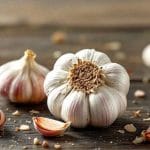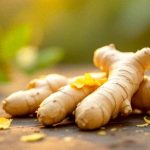Your cart is currently empty!
Takeaways
- Quercetin is a natural antioxidant found in many fruits and vegetables
- It may help reduce inflammation and allergy symptoms
- Quercetin supports heart health and immune function
- Supplements are available, but food sources are preferable
- Typical dosages range from 500-1000 mg per day
- Quercetin is generally safe but may interact with some medications
What is Quercetin?
Quercetin is a flavonoid, a type of plant-based compound known for its antioxidant capabilities. This substance naturally occurs in numerous fruits, vegetables, and grains. Specifically, quercetin is classified within the flavonol subgroup of flavonoids.
Quercetin has attracted considerable interest due to its potential positive effects on health. Studies suggest it could be helpful for a variety of conditions, ranging from allergies to heart issues. The way quercetin functions in the body is primarily as an antioxidant, which combats damaging free radicals.
Many people obtain quercetin through their daily food consumption. However, some individuals opt for supplements to achieve higher dosages. The body doesn’t absorb quercetin well on its own, which is why many supplements combine it with other substances to improve absorption.
Natural Sources of Quercetin
Quercetin can be found in a wide variety of commonly eaten foods. It’s present in many fruits, vegetables, and even some drinks. Here are some notable sources:
| Food | Quercetin Content (mg per 100g) |
|---|---|
| Capers | 234 |
| Red onions | 32 |
| Kale | 23 |
| Blueberries | 8 |
| Red apples | 4 |
Apples, especially the skin, are abundant in quercetin. Red onions contain higher amounts compared to white or yellow onions. Leafy greens such as kale and spinach are also good sources. Berries, particularly blueberries and cranberries, are additional providers of this flavonoid.
The amount of quercetin in food can vary considerably. Factors such as the growing environment, how ripe the produce is, and storage methods influence the levels. Generally speaking, the more vibrant the color of a fruit or vegetable, the more quercetin it contains.
Cooking can cause a reduction in the amount of quercetin present in foods. However, some cooking methods are better at preserving it than others. For instance, microwaving tends to retain more quercetin compared to boiling1.
Health Benefits of Quercetin
Antioxidant Properties
Quercetin is a potent antioxidant. It helps protect cells from the harm caused by unstable molecules known as free radicals. These free radicals can damage cells, which can lead to various health problems.
The antioxidant actions of quercetin might be helpful in preventing chronic illnesses. This includes conditions such as heart disease, cancer, and neurodegenerative disorders. By counteracting oxidative stress, quercetin aids in maintaining overall health and promoting longevity.
Research has demonstrated that quercetin can effectively neutralize a broad spectrum of free radicals. In some instances, it has shown to be more effective than other antioxidants, like vitamin C2. This makes quercetin a valuable compound for preserving cellular health.
Anti-Inflammatory Action
Inflammation is a natural bodily response to injury or infection. However, when inflammation becomes chronic, it can contribute to various health issues. Quercetin has shown potential in reducing inflammation throughout the body.
This flavonoid functions by inhibiting certain enzymes involved in inflammation. It also lowers the production of substances in the body that promote inflammation. These actions could assist in managing conditions linked to long-term inflammation.
Studies suggest quercetin might provide support for inflammatory bowel diseases and could potentially alleviate the symptoms of rheumatoid arthritis. While additional research is necessary, the anti-inflammatory qualities of quercetin are encouraging3.
Allergy Relief
Quercetin’s potential to alleviate allergy symptoms is gaining attention. It works by stabilizing mast cells, which release histamine during allergic responses. This can potentially reduce allergy symptoms like a runny nose and watery eyes.
This flavonoid also appears to reduce inflammation within the airways. This may be beneficial for individuals with asthma or other respiratory allergies. Some research indicates that quercetin could be as effective as certain allergy medications.
Although research is ongoing, many individuals use quercetin to manage their seasonal allergy symptoms. It’s often used in combination with other natural remedies, like vitamin C, for potentially enhanced effects. It is important to seek advice from a healthcare professional before using it for allergies4.
Cardiovascular Health
Quercetin also demonstrates promise in supporting heart health. It might contribute to lowering blood pressure and decreasing the risk of heart disease. These effects are likely a result of its antioxidant and anti-inflammatory characteristics.
Research suggests that quercetin may improve blood flow and reduce stiffness in the arteries. Additionally, it could help lower levels of LDL, often referred to as “bad” cholesterol. These combined effects could significantly reduce the risk of developing heart disease.
Studies indicate that quercetin could be particularly advantageous for people with elevated blood pressure. One specific study showed that it lowered systolic blood pressure by approximately 5 mm Hg and diastolic blood pressure by about 2.6 mm Hg5.
Immune System Support
Quercetin may enhance immune system function in several ways. It possesses antiviral characteristics and may help the body combat infections. This flavonoid also supports the production and activity of immune cells.
Research has shown that quercetin can inhibit the replication of various viruses. These include influenza viruses and the herpes simplex virus. It may also help in reducing the severity and duration of upper respiratory infections.
The immune-boosting effects of quercetin are especially noteworthy during cold and flu season. Some individuals use quercetin supplements to help prevent illness. However, additional research is needed to fully grasp its impact on immune health6.
Quercetin Supplements
Forms and Formulations
Quercetin supplements are available in a variety of forms. The most common include capsules and tablets. Certain products combine quercetin with other substances to improve its absorption. Here are some commonly used forms:
- Pure quercetin capsules
- Quercetin with bromelain (an enzyme from pineapple)
- Quercetin with vitamin C
- Quercetin dihydrate powder
- Liposomal quercetin
Each form of quercetin has unique benefits. For example, combining quercetin with bromelain may enhance its absorption. Liposomal formulations are designed to increase bioavailability. Quercetin powder allows for flexible adjustments in dosage.
When selecting a supplement, consider factors like purity and whether it has undergone third-party testing. Look for products from well-known manufacturers. Also, verify if the supplement contains any extra ingredients that might cause sensitivity.
Dosage Recommendations
The dosage of quercetin can vary depending on its intended use. There isn’t a standard recommended dose. However, most studies use doses ranging from 500 to 1000 mg daily. Here’s a general guideline:
| Purpose | Typical Dosage Range |
|---|---|
| General health | 500-1000 mg daily |
| Allergy relief | 400-600 mg twice daily |
| Athletic performance | 500 mg twice daily |
It’s advisable to start with a smaller dose and increase it gradually, if needed. Some individuals take quercetin in divided doses throughout the day. This might help in maintaining consistent levels within the body.
Remember that these are just general guidelines. The optimal dose may differ depending on personal factors like age, health status, and any other medications being taken. It’s always best to consult a healthcare provider before beginning any new supplement regimen.
Quercetin and Exercise Performance
Quercetin has attracted interest from athletes and fitness enthusiasts. Some research suggests it might enhance exercise performance and recovery. These potential benefits are linked to its antioxidant and anti-inflammatory actions.
Studies have yielded varied results regarding quercetin’s effect on endurance. Some indicate it might improve VO2 max, which measures aerobic capacity. Others show little to no effect. These differences could be attributed to factors such as the specific dosage used and individual responses.
Quercetin may help reduce inflammation and oxidative stress that can occur after exercise. This could lead to faster recovery times between workouts and may also help in protecting against exercise-related muscle damage.
Here are some potential benefits of quercetin for athletes:
- Improved endurance
- Faster recovery
- Reduced muscle soreness
- Enhanced immune function during intense training
- Potential fat-burning effects
While these potential effects are promising, further research is required. The benefits might be more apparent in those who are untrained or new to intense exercise. Elite athletes may not see as dramatic of a result.
If you are considering using quercetin to enhance exercise performance, begin with a moderate dose. Monitor your body’s response and make adjustments as necessary. As always, combine any supplement with a well-balanced diet and proper training for optimal results7.
Quercetin Interactions and Side Effects
Drug Interactions
Quercetin can interact with several medications. These interactions can influence how the drugs function within your body. Here are some key interactions to keep in mind:
Quercetin could potentially interact with blood thinners like warfarin. It may increase the risk of bleeding. If you are currently on blood thinners, it’s important to consult with your doctor before using quercetin supplements.
This flavonoid might also affect how the body processes certain antibiotics. It could either increase or reduce their effectiveness. The same is true for some chemotherapy drugs. Always inform your oncologist about any supplements you are taking.
Quercetin may interact with medications that are metabolized by the liver. This includes many common drugs, and it could potentially amplify or diminish their effects. Discuss any potential interactions with your healthcare provider.
Possible Side Effects
Quercetin is generally considered safe when consumed through foods. However, high doses from supplements may cause side effects in some people. Commonly reported side effects include:
- Headaches
- Tingling sensations
- Nausea
- Upset stomach
Most side effects are mild and tend to resolve on their own. They are more likely to occur with high doses or prolonged use. If you experience any persistent side effects, it may be best to reduce your dose or stop taking the supplement.
In rare cases, quercetin might cause more severe side effects. These could include kidney problems or allergic reactions. If you notice any unusual symptoms, seek medical attention immediately.
Certain groups should be cautious with quercetin supplements:
- Pregnant and breastfeeding women
- People with kidney problems
- Those with bleeding disorders
These groups should avoid using quercetin supplements unless advised by a healthcare provider. The long-term safety of its use has not been fully established. It is best to limit the use of quercetin supplements to short periods or only as directed by a healthcare professional8.
Quercetin in Research
Quercetin has been the subject of numerous scientific studies. Researchers are investigating its potential advantages for various health conditions. Although results are encouraging, further research is still necessary across many areas.
Current research is focusing on quercetin’s effects on:
- Cancer prevention and treatment
- Cardiovascular health
- Neurodegenerative diseases
- Metabolic disorders
- Viral infections
Studies focusing on quercetin and cancer are particularly interesting. Some research indicates it might help in preventing certain forms of cancer. It may also enhance the effectiveness of some chemotherapy drugs. However, these findings are still preliminary and require additional investigation.
In the realm of cardiovascular research, quercetin shows potential in reducing the risk of heart disease. Studies have examined its influence on blood pressure, cholesterol levels, and inflammation. While results appear promising, more large-scale human trials are needed.
Researchers are also examining the neuroprotective characteristics of quercetin. It may have potential in preventing or slowing the progression of neurodegenerative diseases. Studies relating to Alzheimer’s and Parkinson’s disease are ongoing.
The antiviral properties of quercetin are another area of interest. Recent studies have explored its potential against various viruses, including influenza and coronavirus. While initial findings are promising, more research is necessary to confirm these effects.
Despite the encouraging results, there are limitations in current research:
- Many studies are done in test tubes or animals
- Human studies often have small sample sizes
- Long-term effects of quercetin supplementation are not well-studied
- Optimal dosages for specific conditions are not established
As research advances, we will gain a clearer understanding of the health advantages of quercetin. Currently, it is evident that this flavonoid has potential within numerous areas of health and well-being9.
Incorporating Quercetin into Your Diet
Including foods that are rich in quercetin into your daily diet is a natural way to increase your intake. Many of these foods are already part of a healthy eating plan. Here are some tips to boost your quercetin consumption:
-
Eat the rainbow: Colorful fruits and vegetables are often high in quercetin. Include a variety in your meals.
-
Don’t peel apples: Much of the quercetin in apples is in the skin. Eat them whole for maximum benefit.
-
Add onions to dishes: Red onions are particularly rich in quercetin. Use them in salads, sandwiches, and cooked dishes.
-
Snack on berries: Blueberries, cranberries, and other berries are good quercetin sources.
-
Drink green tea: This beverage contains quercetin and other beneficial compounds.
When preparing foods rich in quercetin, keep these tips in mind:
- Raw foods generally retain more quercetin
- If cooking, try steaming or microwaving instead of boiling
- Combine quercetin-rich foods with sources of fat for better absorption
Remember, a well-rounded diet is essential for getting a wide range of nutrients. Don’t focus exclusively on foods rich in quercetin. Instead, aim for a balanced diet with lots of fruits and vegetables.
If you’re considering supplements, whole food sources are often the better choice. They provide quercetin along with other beneficial nutrients. However, supplements may be useful in some cases. Always consult with a healthcare provider before beginning any supplement regimen10.
FAQ: Common Questions About Quercetin
What is quercetin used for?
How much quercetin should I take daily?
Can quercetin help with allergies?
Is quercetin safe during pregnancy?
How long does it take for quercetin to work?
Can quercetin interact with other supplements?
Conclusion
Quercetin is a compelling compound with diverse potential health benefits. From its antioxidant properties to its positive effects on heart health and allergies, quercetin has a lot to offer. While ongoing research continues, current evidence is quite promising.
Many individuals can benefit by increasing their quercetin intake through their diets. Consuming a variety of fruits and vegetables is a great approach to doing this. For those thinking about supplements, it’s important to approach them cautiously, with guidance from a healthcare professional.
Keep in mind that quercetin is just one part of a healthy lifestyle. It works most effectively when paired with a balanced diet, regular exercise, and other healthy behaviors. As with any supplement, it isn’t a magical fix but rather a tool that may support overall health and well-being.
As research progresses, we will discover more about the benefits and optimal uses of quercetin. At this time, it remains an intriguing compound that may support various aspects of health. Whether through diet or supplements, quercetin offers an appealing avenue for those wanting to improve their nutritional intake and support their well-being.
1. Boots, A. W., Haenen, G. R., & Bast, A. (2008). Health effects of quercetin: from antioxidant to nutraceutical. European Journal of Pharmacology, 585(2-3), 325-337. https://www.ncbi.nlm.nih.gov/pubmed/18417116
2. Xu, D., Hu, M. J., Wang, Y. Q., & Cui, Y. L. (2019). Antioxidant activities of quercetin and its complexes for medicinal application. Molecules, 24(6), 1123. https://www.ncbi.nlm.nih.gov/pmc/articles/PMC6470739/
3. Li, Y., Yao, J., Han, C., Yang, J., Chaudhry, M. T., Wang, S., … & Yin, Y. (2016). Quercetin, inflammation and immunity. Nutrients, 8(3), 167. https://www.ncbi.nlm.nih.gov/pmc/articles/PMC4808895/
4. Mlcek, J., Jurikova, T., Skrovankova, S., & Sochor, J. (2016). Quercetin and its anti-allergic immune response. Molecules, 21(5), 623. https://www.ncbi.nlm.nih.gov/pmc/articles/PMC6273625/
5. Serban, M. C., Sahebkar, A., Zanchetti, A., Mikhailidis, D. P., Howard, G., Antal, D., … & Lipid and Blood Pressure Meta-analysis Collaboration (LBPMC) Group. (2016). Effects of quercetin on blood pressure: a systematic review and meta-analysis of randomized controlled trials. Journal of the American Heart Association, 5(7), e002713. https://www.ncbi.nlm.nih.gov/pmc/articles/PMC4943249/
6. Somerville, V. S., Braakhuis, A. J., & Hopkins, W. G. (2016). Effect of flavonoids on upper respiratory tract infections and immune function: A systematic review and meta-analysis. Advances in Nutrition, 7(3), 488-497. https://www.ncbi.nlm.nih.gov/pmc/articles/PMC4863266/
7. Kressler, J., Millard-Stafford, M., & Warren, G. L. (2011). Quercetin and endurance exercise capacity: a systematic review and meta-analysis. Medicine and Science in Sports and Exercise, 43(12), 2396-2404. https://pubmed.ncbi.nlm.nih.gov/21606866/
8. Andres, S., Pevny, S., Ziegenhagen, R., Bakhiya, N., Schäfer, B., Hirsch-Ernst, K. I., & Lampen, A. (2018). Safety aspects of the use of quercetin as a dietary supplement. Molecular Nutrition & Food Research, 62(1), 1700447. https://pubmed.ncbi.nlm.nih.gov/29127724/
9. Anand David, A. V., Arulmoli, R., & Parasuraman, S. (2016). Overviews of biological importance of quercetin: A bioactive flavonoid. Pharmacognosy Reviews, 10(20), 84-89. https://www.ncbi.nlm.nih.gov/pmc/articles/PMC5214562/
10. Williamson, G., Kay, C. D., & Crozier, A. (2018). The bioavailability, absorption, and metabolism of dietary flavonoids: A review. Comprehensive Reviews in Food Science and Food Safety, 17(5), 1054-1112. https://onlinelibrary.wiley.com/doi/full/10.1111/1541-4337.12370
Last medically reviewed and fact checked on
Colors Nutrition does not provide medical advice, diagnosis, or treatment.




